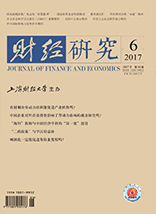The adjustment to China's population policy is a critical decision made by the governments in the period of rapid economic development in China, and has a significant impact on all aspects of social and economic development. This paper focuses on policy adjustment, family planning and government demand for public products, and analyzes the effect of two-child policy on current school district housing based on Shanghai housing data.Based on Hedonic regression model, it discusses the effect of changes in population policy on the prices of school district housing with additional education attribute. It finds that:after the introduction of new population policy, compared with neighbor ordinary housing, relative premium level of school district housing is higher. It further employs fixed boundary method to conclude that the premium increase in high-quality school district housing (by about 8.6%-11.8%) is higher than the one in ordinary school district housing (by about 2.49%-3.97%), fully showing after the adjustment to population policy, partial families in China more desire high-quality education. It uses matching regression to make a robustness test and still supports the conclusions above.
 / Journals / Journal of Finance and Economics
/ Journals / Journal of Finance and EconomicsJournal of Finance and Economics
LiuYuanchun, Editor-in-Chief
ZhengChunrong, Vice Executive Editor-in-Chief
YaoLan BaoXiaohua HuangJun, Vice Editor-in-Chief
The "Two-child" Policy and the Premium of School District Housing: Policy Evaluation Analysis Based on the Change of Population Policy
Journal of Finance and Economics Vol. 43, Issue 06, pp. 93 - 104,封三 (2017) DOI:10.16538/j.cnki.jfe.2017.06.008
Abstract
References
Abstract
Cite this article
Li Xuesong, Chen Ximing, Fang Fang, et al. The "Two-child" Policy and the Premium of School District Housing: Policy Evaluation Analysis Based on the Change of Population Policy[J]. Journal of Finance and Economics, 2017, 43(6): 93–104.
Export Citations as:
For
ISSUE COVER
RELATED ARTICLES




 10464
10464  8634
8634

